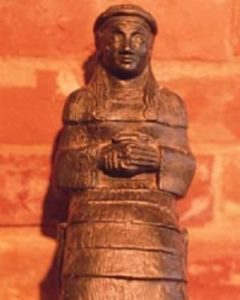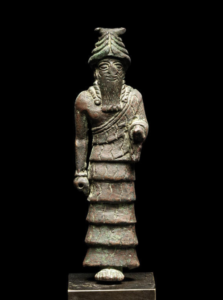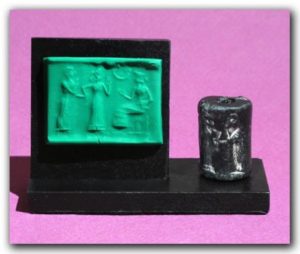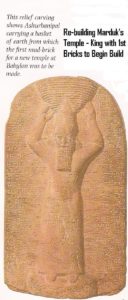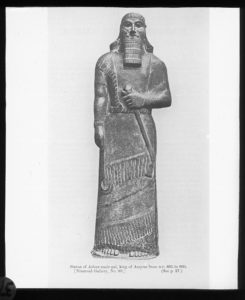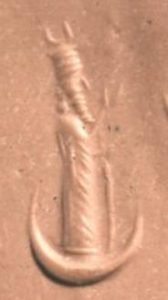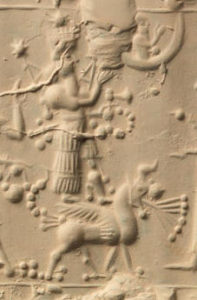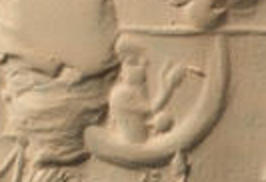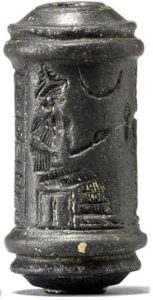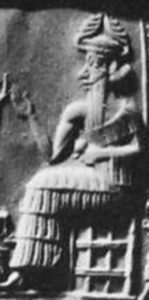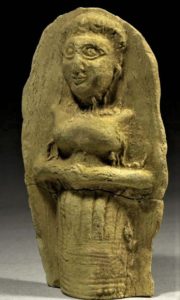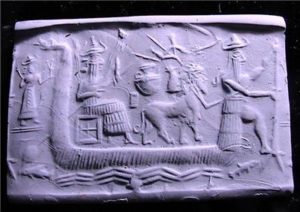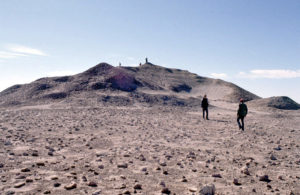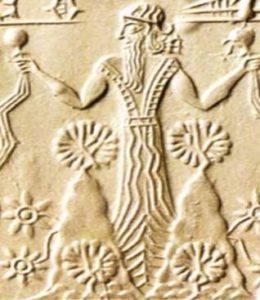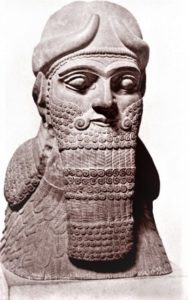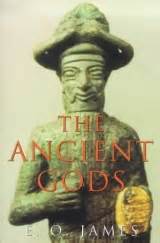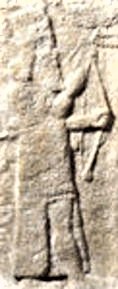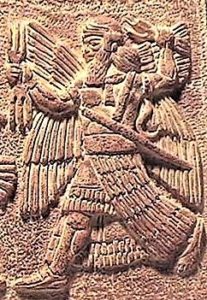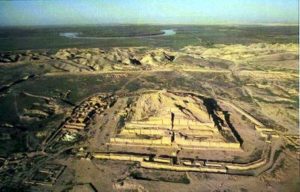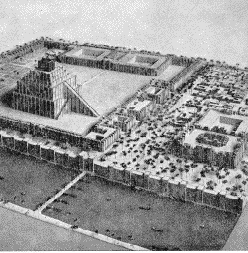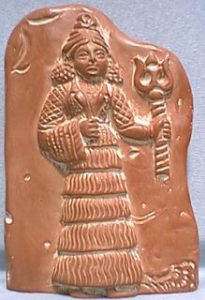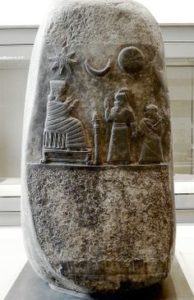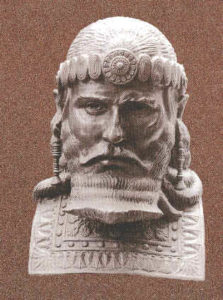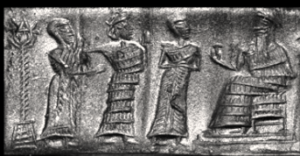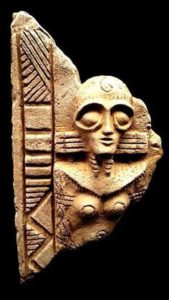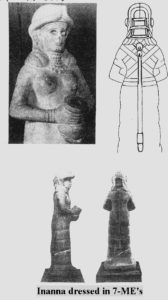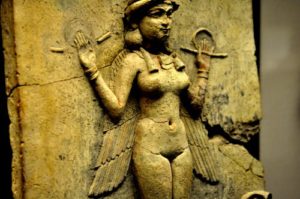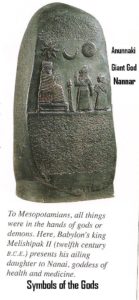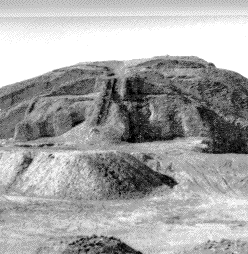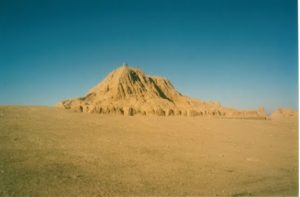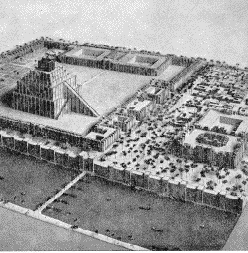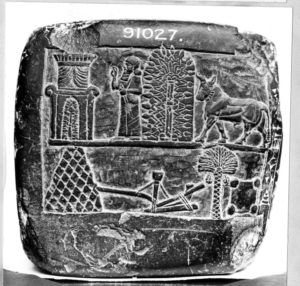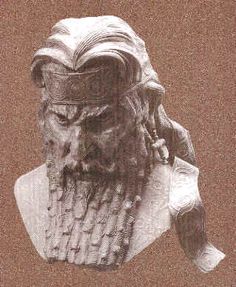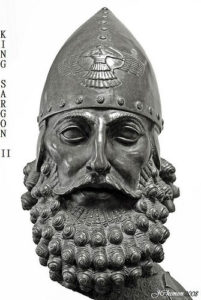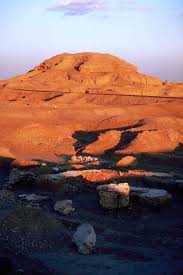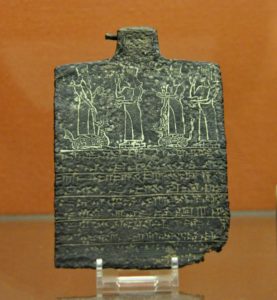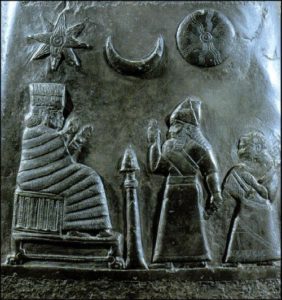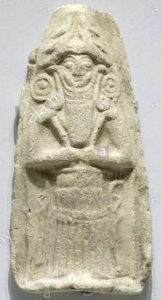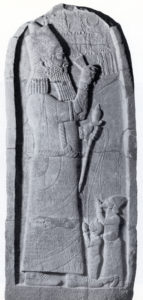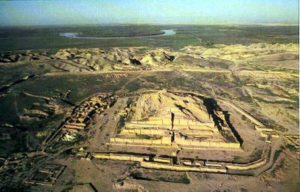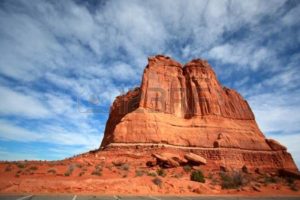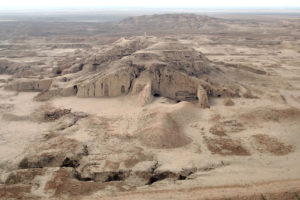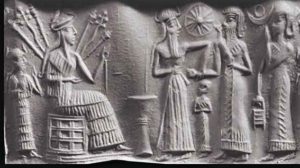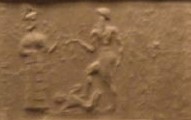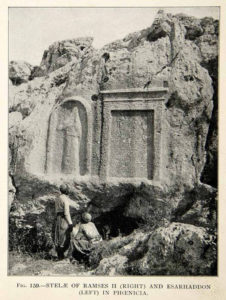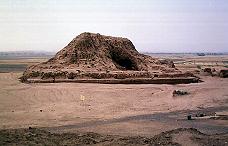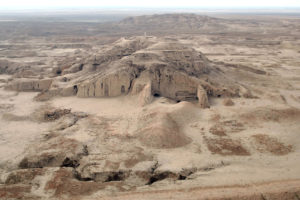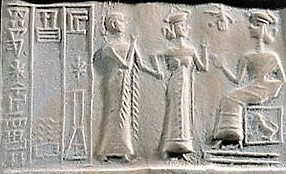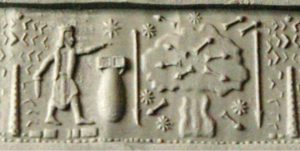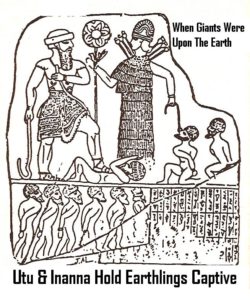(Texts: All Artifacts, Color Coding, & Writings in Bold Type With Italics Inside Parenthesis, are Added by Editor R. Brown, not the Authors, Translators, or Publishers!)
(gods in blue … mixed-breed demigods in teal)
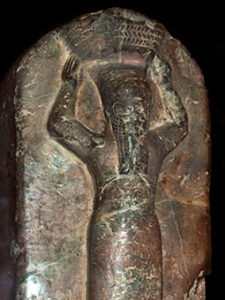 (Samas-suma-ukin, Ashur‘s semi-divine mixed-breed King of Babylon)
(Samas-suma-ukin, Ashur‘s semi-divine mixed-breed King of Babylon)
Šamaš-šuma-ukīn, mighty king (giant “mighty man”), king of the Amnānu, king of Babylon,
capable (and) judicious, shepherd, favourite of the gods Enlil, Šamaš, and Marduk,
king of the land of Sumer and Akkad, I (Ashur’s offspring)––
In the womb of (my) mother who bore me (lit. ‟in the place of creating of the mother who bore me”),
the queen of the gods, the goddess Erua (Sarpanit, Marduk’s spouse), gladly appointed me to be lord of the people.
The great gods looked with pleasure upon me to gather the scattered people of Akkad
and they joyfully appointed me to carry out the forgotten rites and rituals.
The king of the gods, the god Asari (Ashur), came happily with me from Baltil (Aššur) unto ‟the Seat of Life.”
(son Nabu the scribe, semi-divine king, earthling worker, Marduk upon Mushhushu, & son Ashur)
The great lord (and) hero, the god Marduk, gladly took up his holy residence in Esagila,
the palace of heaven and netherworld.
I restored the precious rites (and) choice cult practices of the great gods who sit upon dais(es) in the whole of Ekur.
At that time, I (re-)erected the dilapidated parts of Badullisâ (‟Wall Named in Ancient Times”),
the (city) wall of Sippar, which had become weak and buckled because of enemy disturbances.
I strengthened its weak sections (and) with earth raised its top (as high) as a mountain.
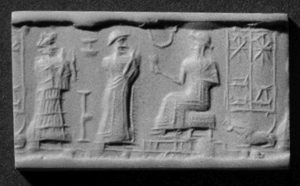 (Aia / Aya & spouse Utu stand before father Nannar)
(Aia / Aya & spouse Utu stand before father Nannar)
On account of this, O god Šamaš, the manly hero, and goddess Aya, (his) bride,
look upon my good deeds with pleasure and speak well of me ––
Šamaš-šuma-ukīn, the humble one who reveres you!
Prayer to Samas for Samas-suma-ukin (02)
(Texts: All Artifacts, Color Coding, & Writings in Bold Type With Italics Inside Parenthesis, are Added by Editor R. Brown, not the Authors, Translators, or Publishers!)
(gods in blue … mixed-breed demigods in teal)
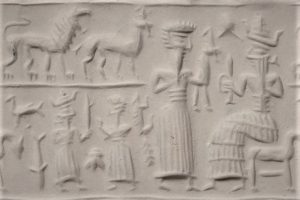 (dinner offering by semi-divine king for Utu)
(dinner offering by semi-divine king for Utu)
For the god Šamaš, king of Sippar, his lord: Šamaš-šuma-ukīn,
viceroy of Šuanna (Babylon), king of Sumer (and) Akkad,
(re)constructed Ebabbar (“Shining House”) (Utu’s temple residence in Sippar) anew with baked bricks
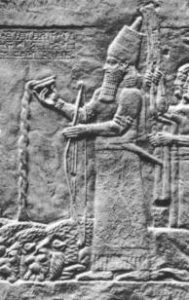 (Assyrian King Ashurbanipal)
(Assyrian King Ashurbanipal)
for the sake of his life and for the sake of the life of Ashurbanipal,
king of Assyria, his favourite brother.
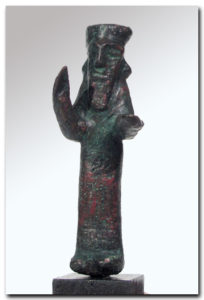
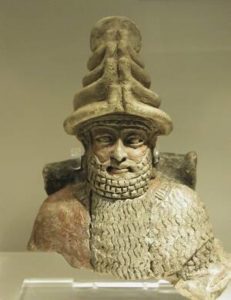
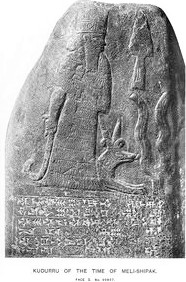
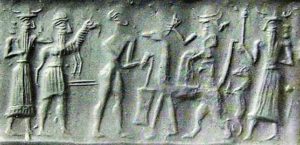
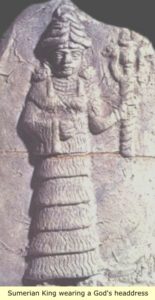
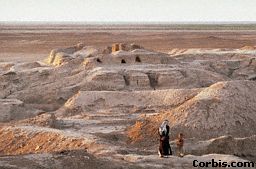
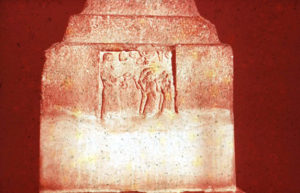
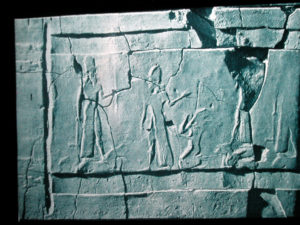
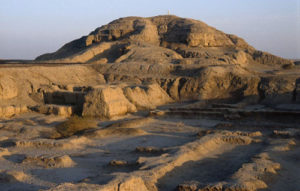
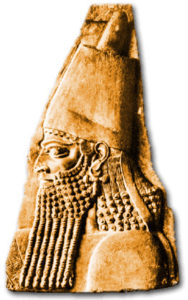
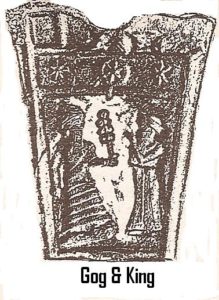
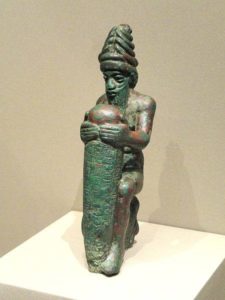
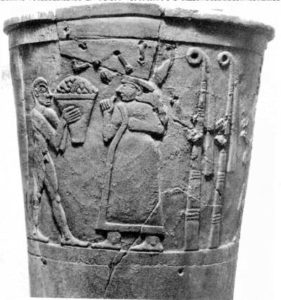 (
(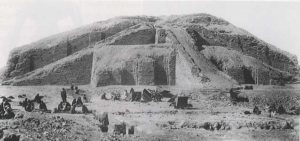
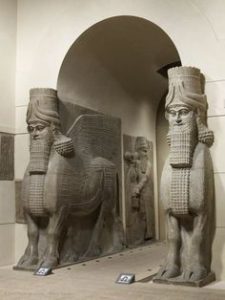
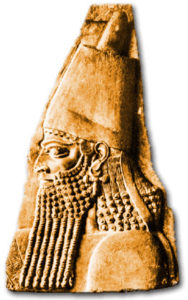
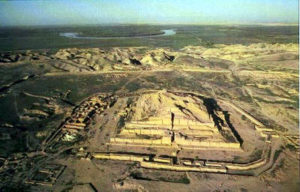
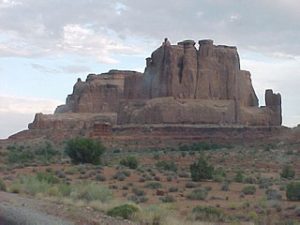

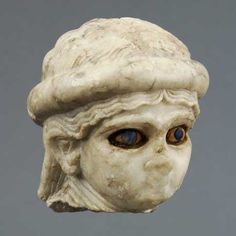
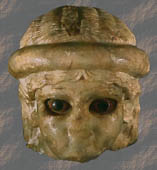 (
(